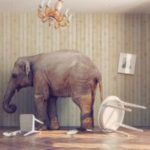"We made the world we’re living in and we have to make it over,” James Baldwin
Stranger in the Village: James Baldwin’s Prophetic Insight into Race and Reality, with a Shimmering Introduction by Gwendolyn Brooks
The path to literary glory is paved with calumny, envy, bias, and malice. Past those obstacles, many others await... Cold Revenge
Principles for Dummies - American Affairs Journal
It seems to have escaped Dalio’s notice and that of his editors—assuming he had any—that Leonardo left us thousands of pages of journals, some of them in museums, some privately owned by Dalio’s friend Bill Gates, all ably edited and available in fine bookstores everywhere. Churchill probably went further in the pursuit of documenting “what guided” him than any statesman in history; even at the height of the war his fellow cabinet officials complained that the essential man spent too much time turning workaday missives into the self-aggrandizing pastiches of Macaulay that he would later quote in his own books. Einstein wrote a great deal about his own life and views. Elsewhere Dalio says something similar about Vince Lombardi, apparently unaware not only of the coach’s best-selling memoir but of his role in the motivational training film Second Effort, one of the first things of its kind ever produced.
;-) Flat Belly Diet! for Men
William H. Gass compiled a final collection near the end of his life, resigned to the fact that his real legacy would be buried by the fickle winds of literary opinion ...
Bibliotherapy: how reading and writing have been healing trauma since World War I - The Conversation – “Bibliotherapy – the idea that reading can have a beneficial effect on mental health – has undergone a resurgence. There is mounting clinical evidence that reading can, for example, help people overcome loneliness and social exclusion. One scheme in Coventry allows health professionals to prescribe books to their patients from a list drawn up by mental health experts. Even as public library services across Britain are cut back, the healing potential of books is increasingly recognised.
The idea of the healing book has a long history. Key concepts were forged in the crucible of World War I, as nurses, doctors and volunteer librarians grappled with treating soldiers’ minds as well as bodies. The word “bibliotherapy” itself was coined in 1914, by American author and minister Samuel McChord Crothers. Helen Mary Gaskell (1853-1940), a pioneer of “literary caregiving”, wrote about the beginnings of her war library in 1918:
How Well-Worn Idioms Shape Our Debates

Most of us don’t seek out a new form of language, and if we happen to come across arbitrary sentences or silly paragraphs, we’re less than thrilled about it. The old idioms work just fine. We know what they mean. Even if I store food in cartons in the fridge, I don’t “keep all my eggs in one basket.” Even if you never cook for yourself, you sometimes “put it on the back burner.” Does this mean that old idioms are inevitably clichéd? … [Read More]
How The Academy’s Best Popular Film Oscar Fiasco Really Went Down
To begin with, the Academy announced the plan for a new category before there was even any agreement on what the criteria for it would be. (Why? They were afraid someone would leak to the press.) That decision “allowed everybody to piss on it from a great height,” as one source said; another lamented, “I knew we were gonna get nailed.” Rebecca Keegan reports.